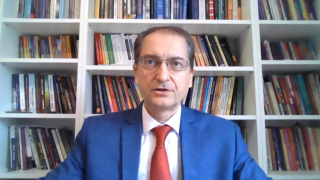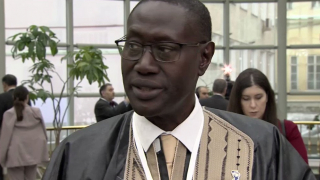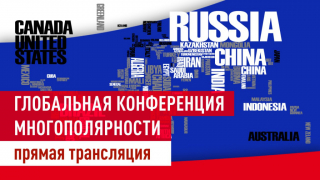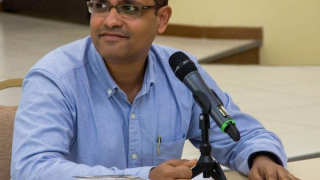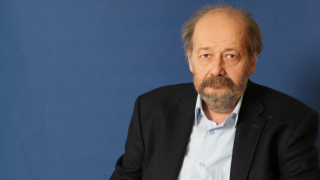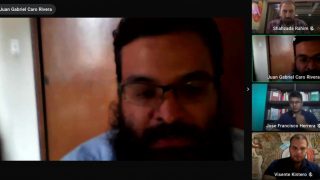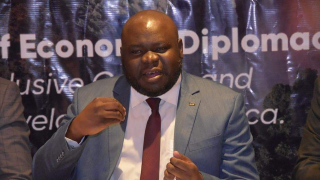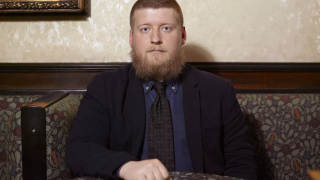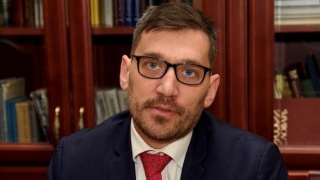Western civil war in the multipolar world
In the eyes of the geopolitician, the West appears to be one. This is only the apparent surface of reality. There is an alignment of European leaders with US foreign policy, but the West does not exist as one civilisation.
The integration of Europe into the « great space » (grossraum) of the United States is the ultimate consequence of profound transformations that took place from the 16th century onwards : the Protestant reformation, the weakening of the Roman Catholic Church, secularisation, the transformation of Calvinist England into a planetary hêgemôn, and the two world wars that put Western Europe under Washington’s tutelage.
However, the Anglo-sphere has always maintained the separation from continental Europe. The United States, not being an empire in the traditional sense, does not see the Old Continent as an extension of its nation. Nor are European countries vassals in the classical sense. America is an unequal hêgemôn, in contrast to the Roman Empire, which considered people as equals. The United States does not behave like an empire towards its vassals, in a mutually beneficial relationship. It devours its European slaves like Kronos eats his children for fear that one of them will supplant him, or at least become emancipated. Washington prefers to sacrifice the countries of Europe, to burn its own ships, rather than see them move closer to Russia, even if it means weakening itself.
The West is therefore not ‘collective’. Apart from anthropological and cultural differences, it has been riven by a serious fracture for several decades, which has turned into a civil war. Anglo-American and Judeo-Protestant ultra-liberalism has destroyed the industrial fabric of Western societies and fractured them geographically, culturally, economically and sociologically. The bourgeoisie of the big cities, on which the ruling classes rely, have seceded from the working classes of the periphery.
But the struggle goes far beyond that of classes. It pits high finance against the real economy, speculation against production, the fictional against the real. It’s an existential war which, as it intensifies, brings together with the hard core of the working class the middle classes threatened with extinction.
Productivist capitalism is no longer, it has changed its nature. It is now sacrificial, it consumes Western societies and peoples. It is a veritable war of extermination that the proponents of this neo-capitalism are waging in a West that is seriously affected by atheism, the breeding ground of nihilism. However, the suicide is not collective. The growing number of revolt movements are proof that the survival and self-preservation instinct of the Western peoples has not disappeared.
Thus, the Western oligarchy and ruling caste are waging a double war : against their own revolting peoples and against Russia. It is more than a global civil war, it is a pan-polemos. It is an interstate, intrastate, socio-economic, biological, religious, existential war. It is a war against life, a war against creation, a war against natural law.
Global civil war and pan-polemos have been spread by the United States, which has established a permanent state of exception in the West and systematically violates international law.
In this anomic context, the violation of natural law has become the rule. The authorisation of homosexual marriage, incest, sex change of adults and children, makes the West the home of antinomianism, to speak in theological-legal terms. It is an entropic movement, the epicentre of which is the Judeo-Protestant Anglo-sphere, which destroys all societies where its hegemony is imposed.
The popular revolts in the West, and the Russian counter-attack in Ukraine against NATO, must thus be interpreted as negentropic reactions to entropic forces. Nomos (law) against antinomianism, order against nihilistic chaos.
Russia is fighting, like the Western peoples, for its existence, to push back evil and expel it from its own body. It is waging an external war, with weapons, and an internal, spiritual struggle. The more the external war intensifies, the more Russia becomes radicalised, in the Latin sense ; it tries to extirpate the tenacious viruses of progressivism.
In this global civil war, in this pan-polemos, the European peoples and Russia are objective allies against those who have designated themselves as their common enemy.
The advent of multipolarity cannot be reduced to a new division of the world and the end of US global hegemony. The Russia/NATO war in Ukraine is not exclusively material, and the popular revolts in the West are not confined to a socio-economic struggle.
The historical coincidence of these different phenomena is not accidental. The identification of the enemy to which the peoples of Europe, Russia, the countries of Africa and China are resisting should make us reflect on the nature of this global struggle. The totalitarian political project of the enemy, its methods and its nihilistic feature, place the pan-polemos imposed on us on eschatological ground.
American leaders, whether believers or atheists, see the United States as a messianic nation whose policies are always justified in a religious sense, even if they lead the world to Armageddon. The danger, in the not too distant future, is the direct confrontation of nuclear powers on European territory, against the will of the people locked into US supranational structures. At this stage, Europeans have not yet found their champions, their true representatives capable of taking over the reins of states that have lost their political sovereignty.
Hope lies in the rapid delegitimisation of European leaders as history accelerates. In this context, Russia plays an important role. The war of attrition it is winning against NATO may ultimately precipitate the fall of several European governments. Thus precipitating the Western civil war to its conclusion.
It is therefore necessary for Russia not to cut itself off from Europe completely and to build bridges with civil society, where the real elites are to be found and from which future leaders will emerge. Multipolarity must be built with the people, and beyond the political powers if necessary.


